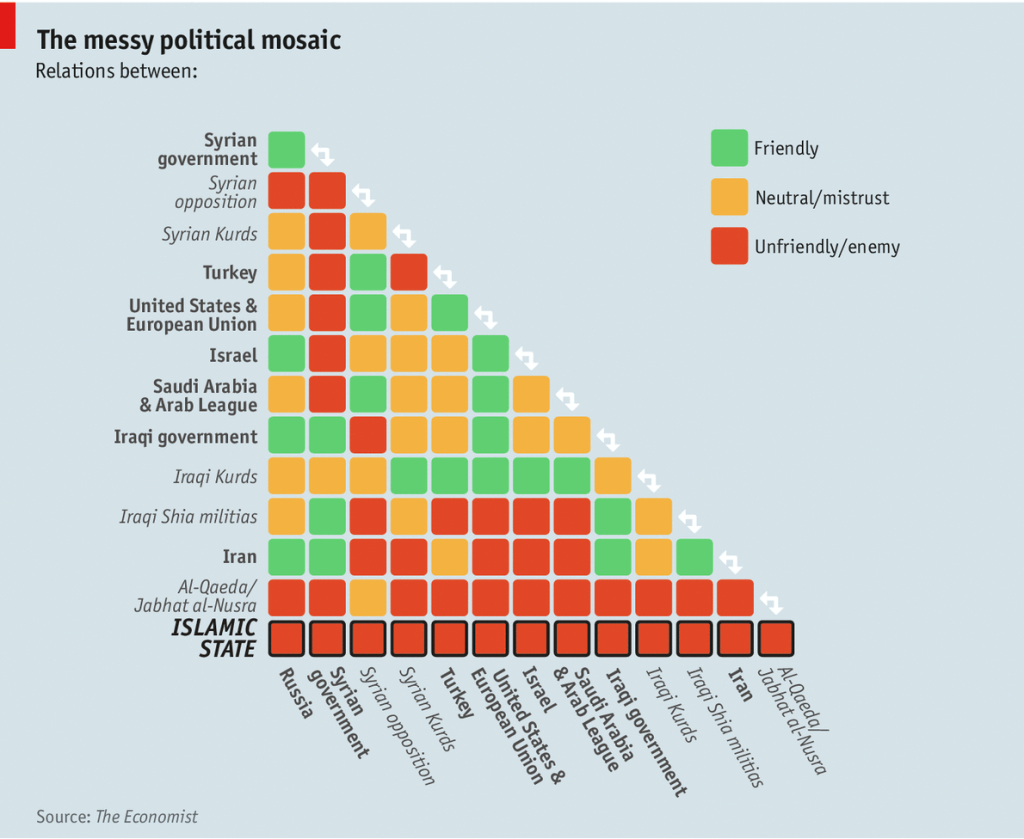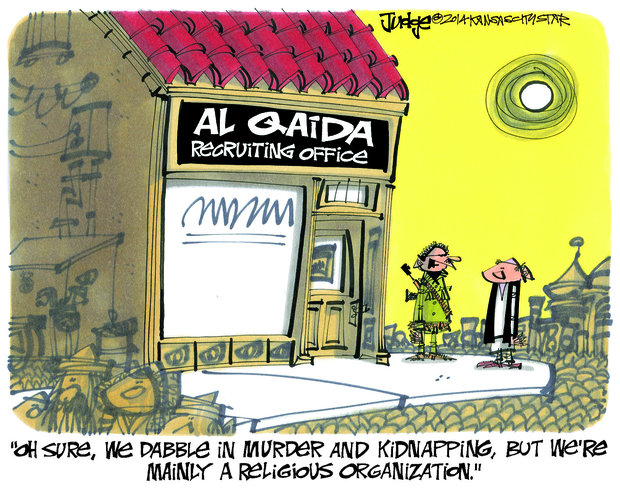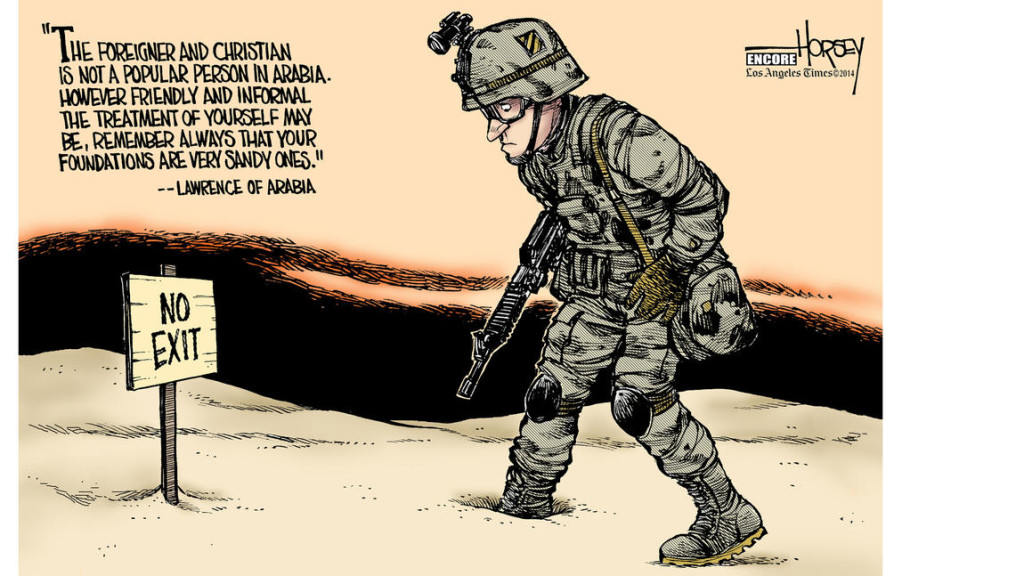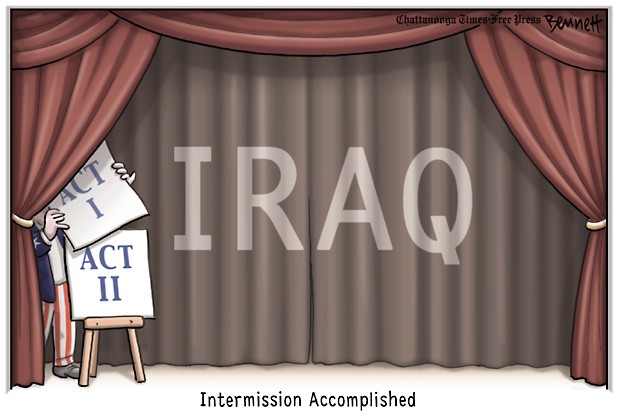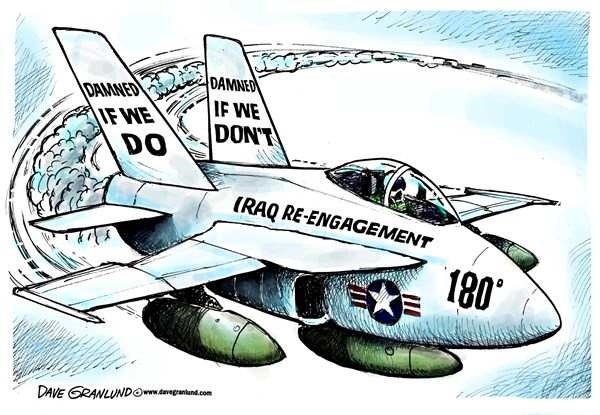Yesterday we explained that, although Kurds are Sunnis, they fight ISIS, which is a Sunni movement. Today, we look at an example of how the Sunni-Shia divide elsewhere in Iraq seems deep enough that it might never be resolved.
The Wall Street Journal has a report on the efforts to resettle Sunnis into areas that were held by ISIS and liberated by Shia: (brackets and editing by the Wrongologist)
ISIS was driven out of Mohamad Mutlaq’s hometown in central Iraq six months ago, and since then, he and his family have tried every few days to…go home. But…each time [Sunnis] approach a bridge to cross back into the town of Yathrib, Shiite tribesmen at a checkpoint beat the Sunni refugees, saying: “Don’t even try to come back…”
The WSJ calls Yathrib a failure in Iraq’s efforts to repopulate ISIS-held Sunni areas, and it points to Tikrit as a success. Tikrit was recaptured from ISIS three months ago, and it is now at the center of a government campaign to rebuild and repopulate the area. But, the challenges are huge:
Tikrit and Yathrib, both in Salahudeen province, illustrate the challenges Iraq faces in trying to resettle…nearly three million displaced people in areas recaptured from ISIS.
Most towns and villages retaken from ISIS remain largely unpopulated as the government struggles to build a process that will return residents to their home towns. Security preparations, mine clearing and infrastructure rebuilding contribute to delays. Yathrib has been empty for six months since its 60,000 people fled ISIS. From the WSJ:
Instead, they couldn’t get past the checkpoint run by a Shiite tribe known as Bani Saad. An Iraqi army unit and three Shiite militias are posted inside the town, but there is little sign of any reconstruction.
When WSJ visited, they saw pockmarked walls of empty homes. Acres of grape vineyards have gone unattended for months. The ceilings of most houses leading into Yathrib are completely collapsed, suggesting they were blown up with improvised explosive devices. Yathrib residents and tribal leaders say Shiite militias aided by the town’s Shiite neighbors have blown up some buildings, while members of the Shiite militia stationed in the town say ISIS fighters blew up the buildings before retreating:
Residents of Yathrib and its neighboring Shiite hamlets are descendants of the same tribe, split into Sunni and Shiite branches. Shiite tribal leaders accuse their Sunni brethren of enabling ISIS to stage attacks against them from the town last summer. They have demanded their Sunni neighbors be allowed to return only on certain conditions.
The neighboring Shiite tribes suggest punitive measures for Sunni Yathrib residents. They included blood money payments, buffer zones between the town and its Shiite neighbors, and even a separate water supply. The Sunni and Shiite areas would report to separate local administrations.
Some of Yathrib’s Sunnis acknowledge they supported ISIS but refuse to apologize for it. The Shiite leader whose tribesmen guard one crossing into Yathrib, said his tribe would accept only blood money paid by the Sunni tribes themselves, not the government, saying:
If the government brings back the people of Yathrib without meeting our conditions, we are going to kill them all.
Tikrit is a different story. Last week, there was an orderly return of 1,400 families to Tikrit, a fraction of the 160,000 people originally displaced from the city.
Iraq’s government claims the return of Tikrit residents is an example of Sunni cooperation with the Shiite-majority militias known as the Popular Mobilization Forces. Those forces led battles across Salahudeen province, and now are in charge of the repopulation effort. The plans for the orderly return of the population took months to get established, and local Sunni tribes that joined Shiite militias to fight ISIS have helped those militias and local officials set up an elaborate screening process. From the WSJ:
Other tensions remain. Sunni policemen stationed around Tikrit said some Shiite militiamen have refused to withdraw from the city despite government orders. In the city itself, they remain an intimidating presence, where residents complain their homes have been searched aggressively and some stores have been looted.
The Obama administration knows that the resettlement process is a make or break issue. If there isn’t a broader and successful reconciliation in Iraq, efforts to beat back ISIS will fail.
Yugoslavia went through the same thing after Tito’s death. There the conflicts were between Christians and Christians and Muslims.
The result was the creation of new nation-states organized largely around religion.
If it was ok for Yugoslavia, why not for Iraq?

